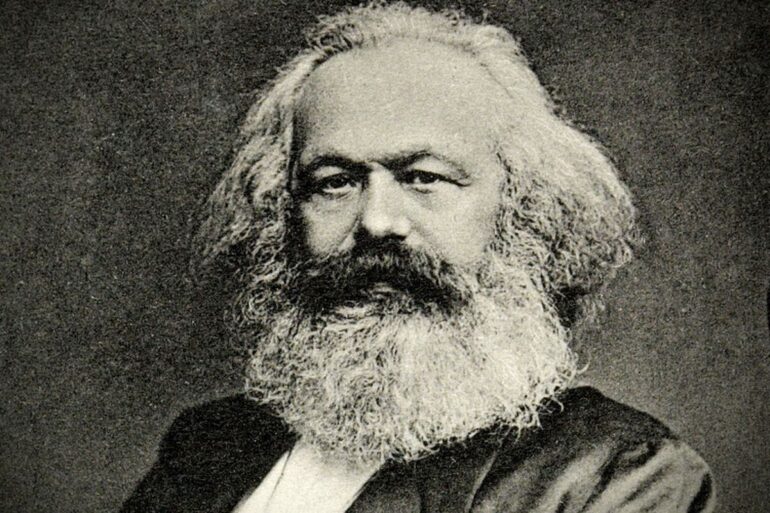I am not a Marxist. I have never been a Marxist. Until recently, I related to Marxism as completely anathema. I felt this way primarily because of the tremendous oppression my family and my people experienced in the Soviet Union, a self-described communist state that idolized Karl Marx.
Growing up in the United States, I felt a natural affinity towards individualism and libertarian values, which I thought to be in conflict with a Marxist ideology I saw as obsolete and proven wrong by historical events.
But in recent years, as I have gained a deeper appreciation for authentic Hebrew values and the national struggles of the Jewish people, I have begun to appreciate not only the value of Marxism but also its power to tackle some of the major challenges obstructing the path to Jewish liberation.
Similar to a deeply held Jewish belief, Marxism sees human history as developing through logical phases of battling forces that culminate in a final liberation of all humanity (this similarity isn’t so surprising within the context of a primordialist approach to Jewish identity given that Marx himself might have been a biological descendant of King David).
Marxism identifies capitalism as a necessary and temporary stage in human development that paves the way to something better. To this end, Marxism teaches a scientific analytical approach to understanding the drivers of capitalism and addressing the problems that it creates.
At its heart, Marxism is really about individualism. Marx was troubled by the plight of the individual in the capitalist world. He lived and wrote in the mid-19th century, at the height of the industrial revolution. Marx witnessed the extreme poverty of Victorian London and saw workers laboring long hours under horrible conditions. All this contributed to the development of a method for understanding social life and the struggle of individuals.
Marxism seeks to free the individual from the oppression and social ills caused by the hyper competitive nature of capitalism, and its propensity to exploit workers, resources, and conquered peoples. Marxism is first and foremost a scientific method and critique of capitalism. It is not, on its own, a solution.
“Solutions” have come in the form of Soviet and Chinese communisms, Castro’s Cuba, the socialism of Sweden, the Israeli kibbutz movement, and many others. These antidotes, however, do not define the scientific method that produced them, and we make a mistake when we assume Marxism to be synonymous with the Soviet Union.
Using the scientific, analytical approach found in Marxism as a distinctive tool and methodology, we can advance the struggle of the Jewish People to not only liberate our own nation from forces that seek to divide our country and suppress the revival of our civilization, but also to usher in a uniquely Hebrew universalist vision for what a post-capitalist world is meant to look like.
This is not some abstract, naïve sentiment. Our recent history proves that Marxism can be successfully employed for the purpose of advancing the struggle for Jewish liberation. The revival of Hebrew independence in the 20th century was in great part achieved due to the use of Marxist tools by Leḥi (Fighters for the Freedom of Israel).
Utilizing a Marxist analysis, Leḥi identified and targeted the forces and interests driving British colonialism in Palestine, and forced the different Jewish underground factions, and public at large, to unite in a common struggle against the British occupation (Leḥi had greater ambitions to unite the entire Middle East in an anti-imperialist front but that failed largely due to an earlier-than-expected British retreat).
We shouldn’t fear any ideology. Rabbi Avraham Yitzḥak HaKohen Kook teaches that all philosophies, ideologies, ideas, and “isms” have a unique place in the world and something important for us to learn from. At its core, Marxism’s approach to freeing the individual by concentrating on the wellbeing of the collective is similar to our own Hebrew tradition.
So long as the world continue to function within a capitalist system, Marxism can be a relevant and powerful tool in our struggle to advance not only Jewish liberation but also our people’s uniquely Hebrew universalist vision for humanity.





